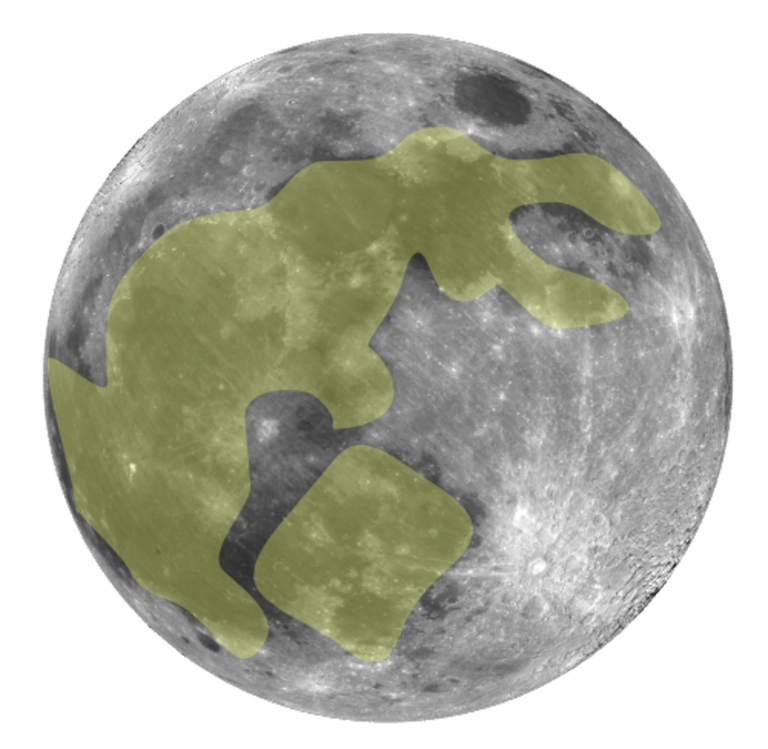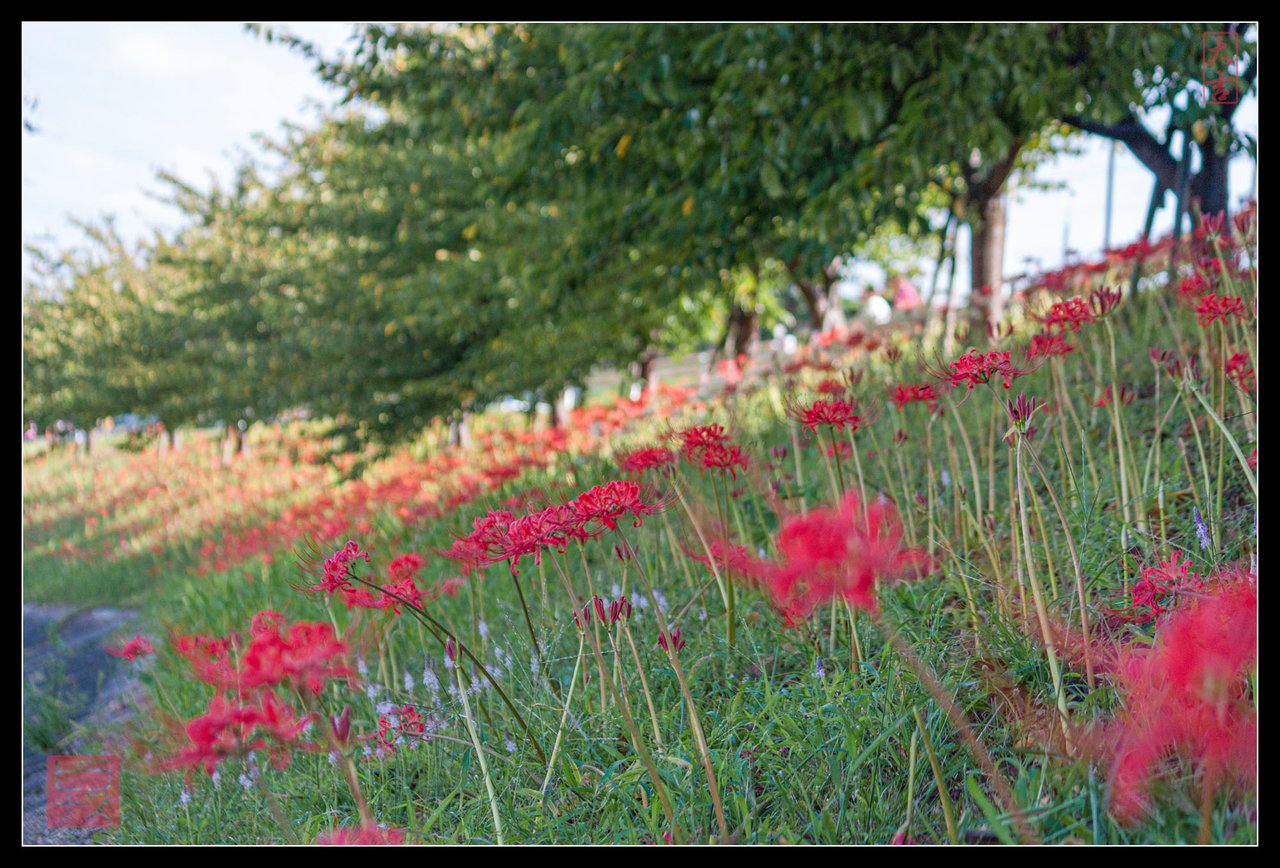As Japan Enters September :: Old Traditions and Current Practices

We will be entering September soon. As always, the year is just flying by. It will be over soon, so let's take a look at it before we blink and it passes us by.
The traditional name for September in Japanese was 長月 (nagatsuki), meaning the long month. Although there isn't universal agreement, the popular idea is that this is a shortening of 夜長月, "the long night month", referring to the fact that the nights are becoming noticeably longer now and it is to the point where it feels like it's growing dark before we know it.
Autumn started a few weeks ago by the traditional reckoning, and autumn is considered the best time of the year for moon viewing. Watching the moon used to be the popular thing to do back in the day. The trend started with the Heian aristocrats (794 - 1185) who did it while drinking sake, getting drunk, and writing poetry about the moon reflected in their sake cups and how much they wanted to sleep with each other. By the Edo period (1603-1867) moon viewing parties and getting drunk while watching the moon had spread to the common people and it became one of the main social events of the year.
Although it could be on any clear night when the moon was visible, the three main moon viewing events were on the 15th (十五夜, jūgoya) of each of the three months of autumn. The 15th was when the full moon hit every month on the lunar calendar in use at the time. Of those three full moons, the most beautiful was said to be the middle one, called chūshū no meigetsu (仲秋の名月), usually shortened just to meigetsu (名月), or "harvest moon". This was during the eight lunar month, but when we overlap the lunar calendar with the modern Gregorian calendar, it becomes around September.
Being that meigetsu was considered the most beautiful moon, this was the biggest moon viewing event. Moon viewing is still a thing these days, by the way, but it has more of that quaint and old fashioned image and it isn't nearly as popular as it once was.
Thinking of the moon, what do you see when you look at the moon? In the US when I was growing up we saw the man on the moon. The orientation of the moon when viewed from most of the US is just perfect for the craters to almost form a face.
Did you know the Japanese see a rabbit pounding mochi? The orientation of the moon when viewed from Japan is such that the features of the moon lend themselves more towards the image of a rabbit pounding something, and the Japanese imagination makes that something mochi (pounded rice), because... well, everyone likes mochi!

There is a fun story about how the rabbit got to the moon in the first place. But that is not directly related to this, so I'll share in in a future post. Just for now know there is a rabbit up there, making mochi for all good girls and boys.
One traditional snack to eat at tsukimi (月見, "Moon viewing"), is tsukimi dango (月見団子, "Harvest Moon Rice Dumpling") because it looks like a full moon. Which always reminds me of this anime song.
I'm not an anime person and I have no idea what the series this comes from is about, but a student showed me the song long ago and it's stuck in my mind since.

Other events in September involve a sumo tournament in Tokyo, one of the six grand tournaments that happen every year. I'm not sure of the exact dates this year, but it is usually the second Sunday to the fourth Sunday, lasting 15 days.
There are also many autumn festivals across the country that take place in September. These are always good fun. Many people will dress in traditional clothes, they may involve carrying portable shrines (神輿, mikoshi) around the town, and there will be plenty of beer and street food.
The third Monday of the month is Respect for the Aged Day (敬老の日, Keirō no Hi), a national holiday reminding us to treat old folks well.
The equinox (秋分の日, shūbun no hi) will be around Sept 22nd this year. It is also a national holiday. The equinox is considered an auspicious time when the border between the world of the living and the world of the dead is very thin.
Which leads us to Higan (彼岸), meaning "the other shore", referring to the other side of the River Sanzu, or the afterlife. This is a time for the Japanese to visit the graves of their ancestors, clean them, and offer prayers.
This is also the time that Higanbana (彼岸花, "Spider lilies", or "flowers of Higan"), will start to bloom. There are a lot of myths and culture baggage behind these flowers. Go read one of my other posts about them.


And.... oh, I'm sure there is more, but these things are off the top of my head. So this is September. Nagatsuki, of old. Let's hope this year it's a good one!
❦
 |
David LaSpina is an American photographer and translator lost in Japan, trying to capture the beauty of this country one photo at a time and searching for the perfect haiku. He blogs here and at laspina.org. Write him on Twitter or Mastodon. |
September is a great month because it's the first of the "ber" months and growing up at a time when there was no electricity, the Moon was a great source of light and of entertainment.
haha the beginning of the ber months. I never thought of it that way. I like that!
Honestly, sounds like my idea of fun.
haha you and me both. Ah, to have been born an aristocrat in old Japan.
An aristocrat anywhere and anytime might have been fun, apart from bad teeth and gout!
Spider lilies are somewhat famous in animes those flowers really have it's deep culture and history behind
That makes sense they show up in a lot in anime. They are a big part of the culture.
very traditional culture Japan
I can't believe September is almost here. It doesn't even seem right. Kids start school on Monday and I am not sure I am ready!
Ah back to school. You know when I was a kid, I envied Michigan kids. In Indiana we always started at the beginning of August. I suppose they still do now. Anyway, good luck!
We definitely start before Labor Day now, but we have to file a waiver with the state to do so.
September is coming 🤩!BBH
I think a lunar calendar makes more sense than what we follow now. Also, this is hilarious:
Sounds like a perfectly fitting tradition for moon-watching.
Doesn't it though? I know where and when I want to be reborn.
Time sure flies by anymore doesn't it? Time waits for no man I suppose...
The rabbit in the moon I hadn't heard before, but it makes sense considering the viewing angle of any object makes it look different!
Time just keeps on ticking, eh?
I'll be writing more about the rabbit on the moon for my next post.
@dbooster! @mdasein likes your content! so I just sent 1 BBH to your account on behalf of @mdasein. (1/1)
(html comment removed: )
)
Hello dbooster!
It's nice to let you know that your article won 🥉 place.
Your post is among the best articles voted 7 days ago by the @hive-lu | King Lucoin Curator by keithtaylor
You and your curator receive 0.0123 Lu (Lucoin) investment token and a 4.46% share of the reward from Daily Report 400. Additionally, you can also receive a unique LUBROWN token for taking 3rd place. All you need to do is reblog this report of the day with your winnings.
Buy Lu on the Hive-Engine exchange | World of Lu created by @szejq
STOPor to resume write a wordSTARTYou received an upvote of 83% from Precious the Silver Mermaid!
Please remember to contribute great content to the #SilverGoldStackers tag to create another Precious Gem.